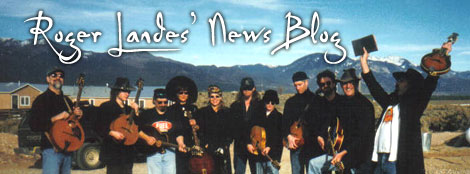posted by zoukboy at 11:12 AM
3 comments
![]()
![]()
Thursday, June 21, 2012
My friend Turlach Boylan suggested I post this here in the hopes that more people might see it than just my friends on FaceBook. It concerns an article in response to a post by an NPR intern on the NPR blog.
This article has gone viral and for good reason. What I find most interesting is the set of unquestioned assumptions held by the writer of the article, the NPR intern to whom the article is addressed, and everyone who commented on the article (that I have read so far). Comments are turned off on the original article so I'll post my thoughts here and hope my FB friends read them.
The article uses the term "music" when it is actually discussing recordings, which are the commodification of actual real, live music made by human beings. Recordings are artifacts, not real music. Also, the "music" in question is all commercial music, mostly popular, and the article does not consider the world of non-commodified music and non-commercial musical life. It also assumes that a problem with the marketing and dissemination of these musical artifacts has something to do with music, rather than with business. I look at this as a business/marketing problem as well as a technological one. Obviously we are in a period where the business model is changing and all the people who work in that industry are being hurt. What's needed is a new business model that is not centered around the creation and distribution of musical artifacts.
I would be the last person to argue that artists should not be fairly compensated, hell, I've been affected by the drop in CD sales, too (in fact, I may never make another CD), but I think there is a basic misunderstanding at work here.
I've had a couple of discussions with friends over the last several years about this, during which I was reminded of the Grateful Dead's turning away from commercial recording after they lost their major label contract. They turned instead to performance and encouraged fans to tape their shows and trade those tapes (just so long as they didn't sell them). It had the affect of building their live audience and they were successful for the rest of the band's career.
Granted, they had an advantage in that they were already well-known and popular but I wonder if there isn't something in their story that might provide a clue for a new business model for commercial musicians?


